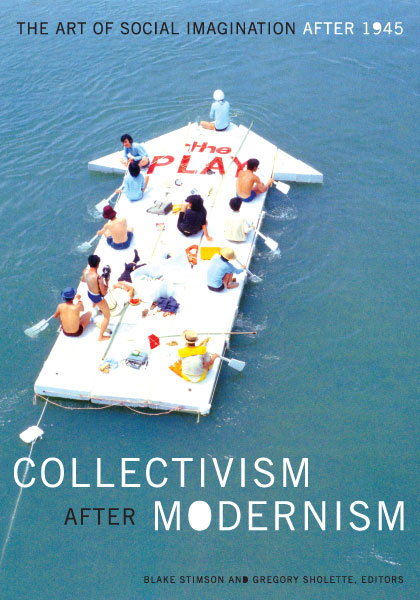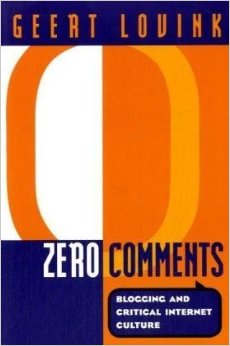Charlotte Hess, Elinor Ostrom (eds.): Understanding Knowledge as a Commons: From Theory to Practice (2006)
Filed under book | Tags: · archive, collaboration, commons, democracy, economics, education, fair use, floss, free software, governance, intellectual property, knowledge, library, networks, open access, participation, patents, property rights, public domain, publishing, research, scholarship, technology

“Knowledge in digital form offers unprecedented access to information through the Internet but at the same time is subject to ever-greater restrictions through intellectual property legislation, overpatenting, licensing, overpricing, and lack of preservation. Looking at knowledge as a commons—as a shared resource—allows us to understand both its limitless possibilities and what threatens it. In Understanding Knowledge as a Commons, experts from a range of disciplines discuss the knowledge commons in the digital era—how to conceptualize it, protect it, and build it.
Contributors consider the concept of the commons historically and offer an analytical framework for understanding knowledge as a shared social-ecological system. They look at ways to guard against enclosure of the knowledge commons, considering, among other topics, the role of research libraries, the advantages of making scholarly material available outside the academy, and the problem of disappearing Web pages. They discuss the role of intellectual property in a new knowledge commons, the open access movement (including possible funding models for scholarly publications), the development of associational commons, the application of a free/open source framework to scientific knowledge, and the effect on scholarly communication of collaborative communities within academia, and offer a case study of EconPort, an open access, open source digital library for students and researchers in microeconomics. The essays clarify critical issues that arise within these new types of commons—and offer guideposts for future theory and practice.”
Contributors: David Bollier, James Boyle, James C. Cox, Shubha Ghosh, Charlotte Hess, Nancy Kranich, Peter Levine, Wendy Pradt Lougee, Elinor Ostrom, Charles Schweik, Peter Suber, J. Todd Swarthout, Donald Waters
Publisher MIT Press, 2006
ISBN 0262083574, 9780262083577
367 pages
PDF, PDF (updated on 2013-5-14)
Comment (0)Blake Stimson, Gregory Sholette (eds.): Collectivism after Modernism: The Art of Social Imagination after 1945 (2007)
Filed under book | Tags: · collaboration, collective art, participation, situationists, video art

“The desire to speak in a collective voice has long fueled social imagination and artistic production. Prior to the Second World War, artists understood collectivization as an expression of the promise or failure of industrial and political modernity envisioned as a mass phenomenon. After the war, artists moved beyond the old ideal of progress by tying the radicalism of their political dreams to the free play of differences.
Organized around a series of case studies spanning the globe from Europe, Japan, and the United States to Africa, Cuba, and Mexico, Collectivism after Modernism covers such renowned collectives as the Guerrilla Girls and the Yes Men, as well as lesser-known groups. Contributors explore the ways in which collectives function within cultural norms, social conventions, and corporate or state-sanctioned art. They examine the impact of new technologies on artistic practice, the emergence of networked group identity, and the common characteristic of collective production to blur the typical separations between artists, activists, service workers, and communities in need.
Together, these essays demonstrate that collectivism survives as an influential and increasingly visible artistic practice despite the art world’s star system of individuality. Collectivism after Modernism provides the historical understanding necessary for thinking through postmodern collective practice, now and into the future.”
Contributors: Irina Aristarkhova, Jesse Drew, Okwui Enwezor, Rubén Gallo, Chris Gilbert, Brian Holmes, Alan Moore, Jelena Stojanovi´c, Reiko Tomii, Rachel Weiss.
Publisher University of Minnesota Press, 2007
ISBN 0816644624, 9780816644629
xviii+312 pages
Key terms: Art & Language, collectivism, unitary urbanism, Akasegawa Genpei, video art, detournement, conceptual art, Asger Jorn, Fluxus, ABTV, Ernesto Leal, Situationist International, Guy Debord, Havana, Glexis Novoa, cold war, Art Workers Coalition, avant-garde, Cuba, Gutai
PDF (9 MB, updated on 2019-12-18)
Comments (2)Geert Lovink: Zero Comments: Kernels of Critical Internet Culture (2007)
Filed under book | Tags: · blogging, collaboration, distributed aesthetics, internet, internet culture, media theory, net criticism, networks, web 2.0

In Zero Comments Geert Lovink upgrades worn-out concepts and inquires the latest Web 2.0 hype around blogs, wikis and social network sites. In this third volume of his studies into critical Internet culture, Lovink develops a ‘general theory of blogging.’ Unlike most publications he is not focusing on the dynamics between bloggers and the mainstream news media. Instead of celebrating ‘citizen journalism’ blogs are analyzed in their ‘nihilist impulse’ to empty out established meaning structures. Blogs bring on decay of the 20th century broadcast media, and are proud of their in-crowd aspect in which linking, tagging and ranking have become the main drivers. The book also deals with the silent globalization of the Net in which no longer the West, but countries like India, China and Brazil are becoming main players in new media culture. It is not only the latest that Internet enthusiasts should focus on. Zero Comments upgrades concepts such as global Internet time, tactical media, the crisis of new media arts and the problematic relationship between architecture and the Net. The book ends with speculative notions on concepts such as organized networks, free cooperation and distributed aesthetics.
Publisher Routledge, 2007
ISBN 0415973155, 9780415973151
312 pages

